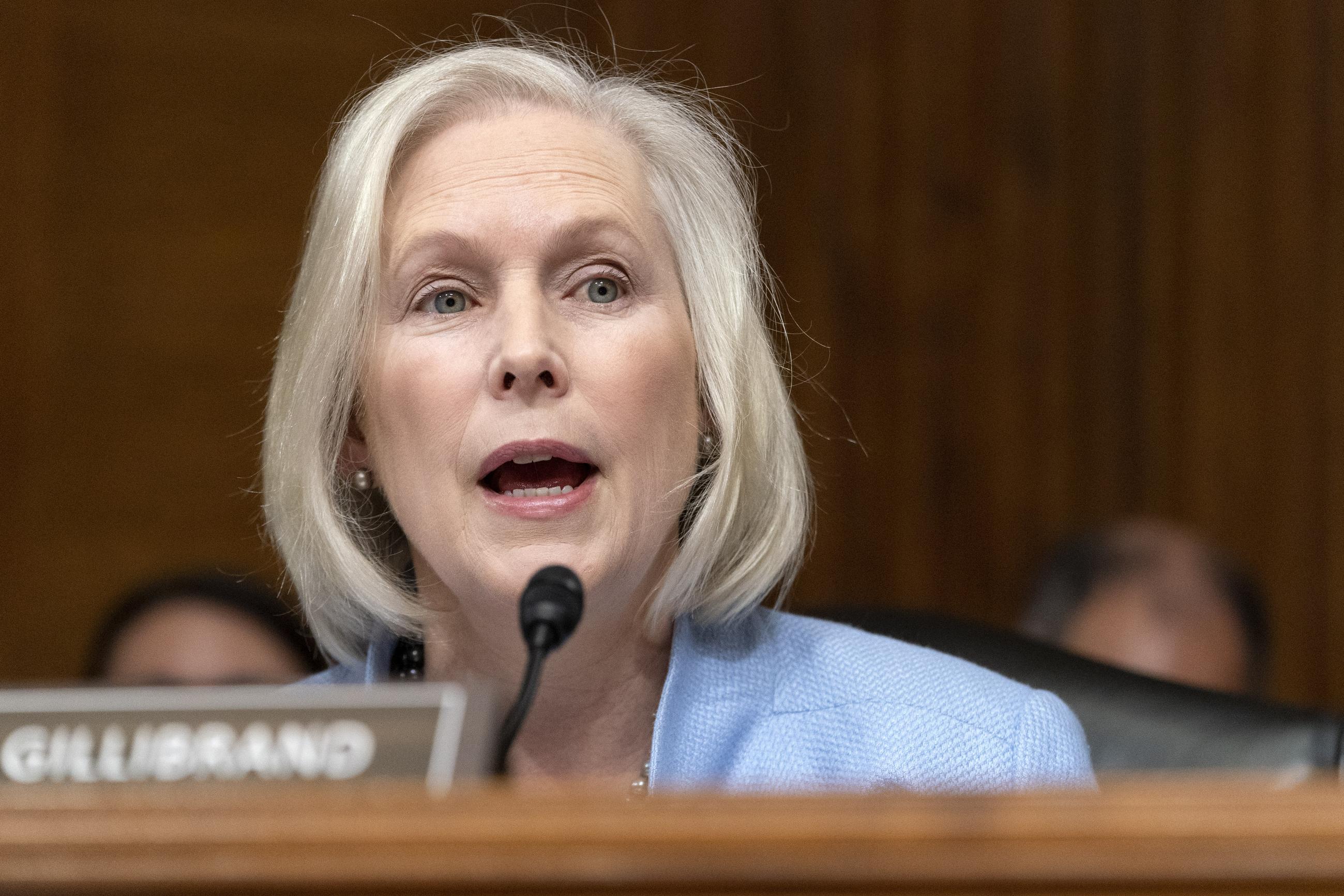If voters on Tuesday were sending a message to President Trump, the early evidence is that he didn’t get it.
Exactly a year after he completed a historic comeback and won a second term by giving voice to national concerns over the economy and high prices, the president has stopped talking about what Americans are most concerned about.
As he demonstrated in a speech in Miami on Wednesday, Trump is talking about what he cares about.
In his speech, the main takeaway from the election was to ratchet up his mocking of New York City Mayor-elect Zohran Mamdani, a Democratic Socialist. “After last night's results, the decision facing all Americans could not be more clear. We have a choice between communism and common sense,” he said, adding, “As long as I’m in the White House, the United States is not going communist in any way, shape, or form.”
That already has become the favorite Republican talking point. But it misses the point being made by voters in Virginia and New Jersey. They want the White House talking about affordability and prices. In Miami, the president did mention turkey prices for Thanksgiving—but he turned that into a joke by noting that a Saudi princess was in the room and “probably doesn’t care” about buying a turkey in grocery stores.
If, as reported, there are Trump advisers hoping the president turns his focus to domestic concerns, it was not evident in his first speech since the returns came in.
Instead, the speech included all his usual takes on cultural issues, such as transgender athletes playing against girls, and his favorite foreign policy subjects—“peace in the Middle East,” his claim that he ended eight wars, complaints about South Africa, and comments on Saudi Arabia’s relations with Israel, the upcoming World Cup, military strikes on boats in the Caribbean, and a malfunctioning teleprompter when he spoke at the United Nations.
These are Trump’s grievances, not the grievances of average Americans.
The president was true to form in refusing to take any responsibility for what was a widespread drubbing for the GOP.
“It was obviously a really good night for Democrats,” said Republican pollster Whit Ayres. “And not just in the high-profile races of New York, New Jersey, and Virginia, but in the less visible races like the Public Service Commission in Georgia or the state Supreme Court elections in Pennsylvania.”
The message to Republicans, Ayres said, is that it is imperative to get Trump’s approval ratings higher before next year’s midterm elections. “We know that midterm elections are referenda on the party in power and the president’s job performance,” he said. “When the president’s job approval is above 50 percent, the party loses an average of 14 House seats. But when it’s below 50 percent, the party loses an average of 32 House seats.”
A CNN poll released on Monday showed only 37 percent of Americans approving of Trump's performance in office and 63 percent disapproving.
Ayres noted that Republicans have a year to right the ship. But he said that will not happen unless Trump recognizes “that there’s an enormous amount of economic angst out there and concern about the cost of living and rising inflation.”
“He was elected in large part to bring down inflation and juice the economy,” Ayres said. So a lot of talk by Trump about foreign policy and personal grievances is damaging.
There also were other warning signs for Republicans in the Virginia and New Jersey exit polls.
In Virginia, 80 percent said they were “dissatisfied or angry” about “the way things are going in the U.S.” That number was 65 percent in New Jersey. In Virginia, 39 percent approved of the job Trump is doing; in New Jersey, 42 percent approved.
In both states, a majority said Trump’s immigration actions “have gone too far”—54 percent in New Jersey and 56 percent in Virginia. Voters in New Jersey were split on whether the new governor should cooperate on federal immigration enforcement—49 percent were against cooperation, while 47 percent favored it.
Ayres called the immigration numbers a warning sign to the administration that it has strayed from a “focus on the people that most Americans believe should be deported, the people who have committed crimes.”
But those numbers are unlikely to force any change in the president’s anti-immigrant fervor.
His reaction has been in keeping with his response to past elections when his favored candidates lost. Perhaps his attitude was best captured in an interview with NewsNation before the election results in 2022. “I think if they win, I should get all the credit. And if they lose, I should not be blamed at all,” he said. He complained that, instead, when his hand-picked candidates win, “I won’t be given any credit. And if they do badly, they will blame everything on me.”
Even as the votes were being counted Tuesday night, Trump took to Truth Social to lay the blame for the defeat on others: “‘TRUMP WASN’T ON THE BALLOT, AND SHUTDOWN, WERE THE TWO REASONS THAT REPUBLICANS LOST ELECTIONS TONIGHT,’ according to Pollsters.”
When Republicans lost in 2017 and 2018 in his first term, he similarly blamed the fact that he wasn’t on the ballot, saying he could not be held responsible. "I didn’t run. I wasn’t running. My name wasn’t on the ballot,” he said after Republicans lost the House in 2018.
Speaking to Senate Republicans at a breakfast in the State Dining Room Wednesday, Trump noted that “pollsters” had said the government shutdown was a “big factor, negative for the Republicans.” For the first time, he acknowledged that the ongoing shutdown was hurting his party more than it was hurting Democrats, saying of the opposition, “I don’t think they’re getting really the blame that they should.”
One reason for the gubernatorial losses in Virginia and New Jersey was the failure of both Republican candidates to put any distance between themselves and Trump, despite his unpopularity in their states.
In 2024, Trump received only 46.1 percent in New Jersey and 46.6 percent in Virginia. So the Republican candidates could not win without getting some voters who had voted against Trump. But both refused to stray from the MAGA orbit, and both crashed in defeat.
It’s a lesson likely noticed by Republicans who will be on the ballot next year in marginal districts.










